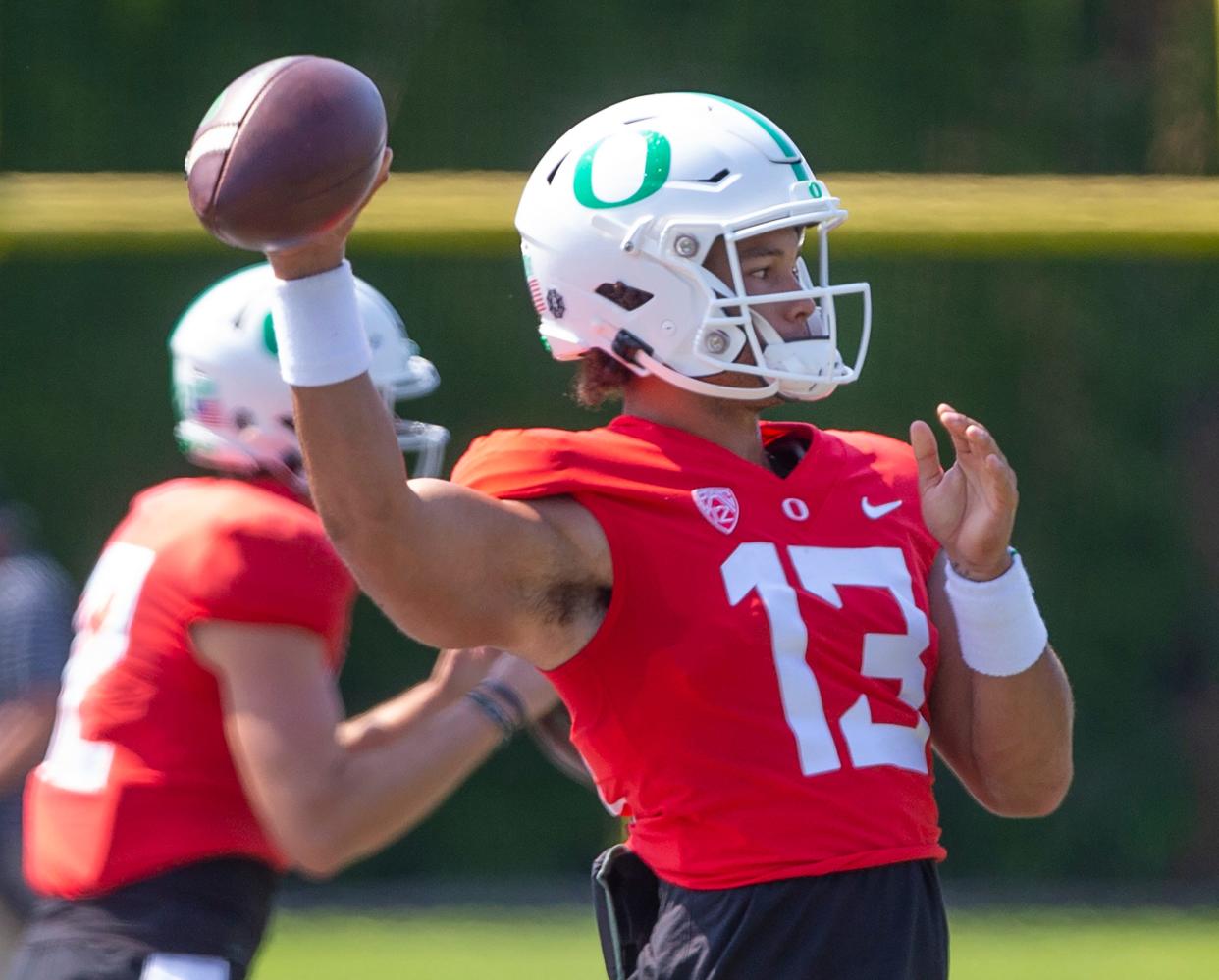Is a March Madness-style playoff headed for NCAA football?

Nobody knows what comes next for the University of Oregon’s athletic programs or the Pac-12 Conference. The NCAA itself seems powerless and uninterested in its future, leaving those decisions to competing television and media outlets. They will be spending billions for the top-drawer entertainment the schools reliably provide.
I don’t know what comes next, but I have a good idea about what comes after that. NCAA has already found the winning formula for televised sports entertainment. They only need to replicate basketball’s March Madness into a months-long football playoff tournament. It may take another 10 years, but I’ll bet that’s where things are heading.
News coverage has focused relentlessly on how the major football conferences relate to one another, after UCLA and USC announced they were leaving the Pac-12 for the Big Ten in 2024. We have been paying attention locally to what will happen to OSU if the UO receives and accepts a similar offer.
Every conference has weaker members who rely on proximity and historic rivalries to stay relevant amid stronger rivals. As collegiate sports transitions to becoming a national entertainment product, stadium ticket sales and proximity to fans wanes. Media money waxes.
We forget that Vanderbilt is a member of the SEC or that Rutgers is part of the Big Ten. Most of their conference rivals would happily forget them too. Television outlets will want more games from top-tier teams and fewer games featuring the rest. A double-elimination tournament that lasts for months will accomplish this.
Conference play will be reduced to a few weeks at the start of the season as teams position themselves for the games that matter. The first games will resemble exhibition games, followed by two months of games where the losers go home.
You might laugh at a playoff structure that begins with 64 teams, but only because you don’t think like a TV executive. There have been as many as 40 bowl games that constituted collegiate football’s post season. This will be nothing more than a better organized version of that.
Television executives don’t care about coaches getting only a week to prepare their team for an opponent. Or the cost of transporting equipment across the country. Or the education of collegiate athletes. The entertainments dollars earned and spent will solve all those minor problems, except the last one.
Schools with good teams will play more games and earn more money. Lesser teams will earn and play less. Entertainment dollars will drive every other detail.
How will the University of Oregon fare in such a system? So many changes will happen during the intervening years that it’s impossible to predict. As athletes consider themselves professionals in the Name-Image-Likeness sports economy, they may not consider any affiliation with any school to be important.
Or it may all have the opposite effect. Athletes may only want to be aligned with branding powerhouses that can launch them to stardom. That will favor the Ducks, at least until TV executives set their sights on promoting and televising high school games.
Don Kahle (fridays@dksez.com) writes a column each Wednesday and Sunday for The Register-Guard and archives past columns at www.dksez.com.
This article originally appeared on Register-Guard: Is a March Madness-style playoff headed for NCAA football?

